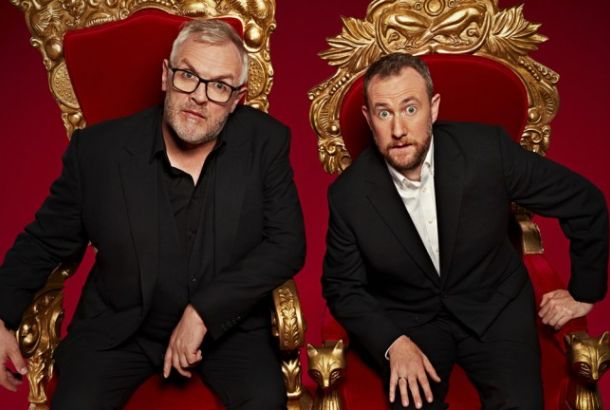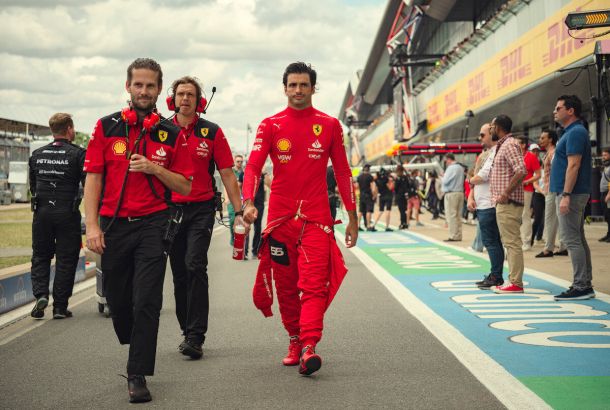
The day October 18 1922 is probably the most important one in the history of British media: the British Broadcasting Company Limited was established. Following the closure of amateur radio stations broadcasting across the country, the company began its first daily service in London.
What was to come was a century of informing, educating and entertaining through an expansion to 13 national and 49 local and regional radio stations, as well as 11 national television stations. Broadcasting in 28 languages worldwide, the BBC (British Broadcasting Corporation since 1927) is one of the world’s best-known and well-trusted media outlets.
With that, the BBC took it upon itself to celebrate its centenary in style, with a week’s worth of programming dedicated to looking back at the last 100 years of Britain’s national broadcaster. The much-loved children’s series Horrible Histories kicked off proceedings with their ‘Big BBC Birthday Bonanza’ on CBBC, hosted by EastEnders and Strictly Come Dancing star Rose Ayling-Ellis. The one-off episode delved into the corporation’s past, from singing and dancing about the tales of the longest running children’s programme in the world, Blue Peter, to mimicking John Logie Baird taking a child on an adventure through the history of television with some musical inspiration from Willy Wonka.
Everyone’s Saturday night favourite Strictly Come Dancing hosted a celebration with the celebrities dancing to some of the channels best known theme tunes. From a Tango to the Casualty heart beats, to a Foxtrot to the EastEnders melody, and even a Viennese Waltz to Line of Duty, the programme got mixed feedback from viewers, as some saw it as a “push” for the celebrations. However, a Charleston to the much loved Victoria Wood tune ‘The Ballad of Barry & Freda’ wasn’t enough to save Jayde and Karen this week.
BBC Four, which is expected to turn into a digital-only archive channel in the next few years, looked through the company’s extensive collection of comedy programmes every night in celebration. From 7pm , a history of comedy from Morecambe and Wise, ‘Allo ‘Allo, thorugh My Family, and Some Mothers Do ‘Ave ‘Em, to Absolutely Fabulous, and Red Dwarf, to name but a few, cheered up the nation in a nostalgic take on the festivities.
An estimated 5.3 million of us tuned in to see the end of Jodie Whittaker’s time as The Doctor in ‘The Power of the Doctor’, which aired on the second day of the BBC 100 week. The episode saw the Thirteenth Doctor reunite alongside an array of her former companions, with Tegan (Janet Fielding), Ace (Sophie Aldred) and Graham (Bradley Walsh) helping Whittaker take on her final battle. The episode also saw cameo appearances from the First, Fifth, Sixth, Seventh, Eighth and Fugitive Doctors. As the Thirteenth Doctor regenerates, a familiar face is welcomed back to the role, as The Doctor’s Fourteenth incarnation looks pretty similar to their Tenth…
During the week, BBC One’s evening magazine programme The One Show was renamed The 100 Show, as it reflected on the history of the corporation and all that it has provided to the nation over the last century. The show looked back at classic programming and spoke to people about how the BBC had been there for them throughout their lives.
Blue Peter’s longest-serving female presenter Konnie Huq looked back at the history of children’s television on the BBC in the documentary Kids’ TV: The Surprising Story. Huq explored how programmes like Blue Peter, Newsround, Going Live, and Grange Hill had not only provided entertainment to children but sometimes led to important social changes, too. Chatting to other children’s television legends, like Tracy Beaker’s Dani Harmer and Play School (1964-1988) presenter Floella Benjamin, Huq looked at how the genre has changed the media landscape for the nation’s kids.
BBC One favourites Bargain Hunt, Antiques Roadshow, and The Repair Shop all got involved with the celebrations, with a surprise visit from His Majesty The King in the latter.
One of the highlights of the BBC 100 week was BBC Two’s The Love Box in Your Living Room, in which comedians Harry Enfield and Paul Whitehouse told the “true story” of the BBC. From all the way back in the “olden days” to today, the pair told the story through hilarious sketches of boardroom meetings and mock programming. Whether it is the five women the BBC had in the 1980s (amongst them French & Saunders), every woman in the 40s being called Vera or Lynn (and even a Vera Lynn), or a Death in Paradise stitch-up, the comedians didn’t shy away from anything.
To learn more about the BBC’s centenary anniversary, the corporation has a dedicated webpage of information at bbc.co.uk/100







